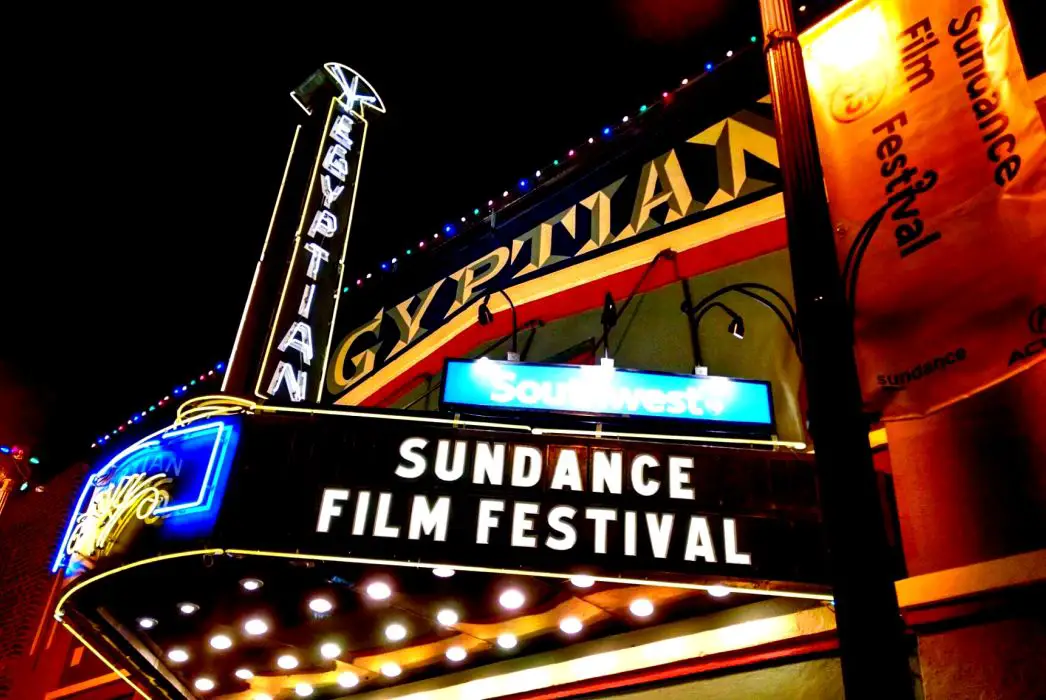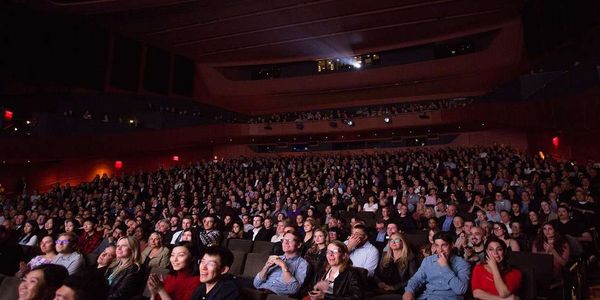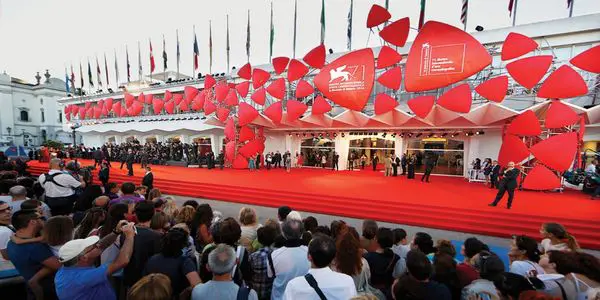Why Are Film Festivals So Expensive & Exclusive?

An overwhelmed and underdressed film writer based in New York.…
If you grow up watching and loving movies, it’s your dream to one day go to the Sundance, Cannes, Toronto, Venice, Telluride, and the New York Film Festivals. If you’re a hopeful journalist, it’s your goal to get a press pass. If you’re an inspired filmmaker, it’s your lottery win if your film is selected to any of these prestigious film epicenters.
Film festivals are the places of premieres with red carpets and A-list celebrities. They bring together the film world into one spot for a couple of weeks if you’re a major festival or just a weekend for some local moviegoers.
They offer real chances to speak with these actors and directors through the form of question-and-answer sessions. They give opportunities to up-and-coming filmmakers, rising stars in the industry, who are making movies that matter. Film festivals allow us to give awards, and boy, do we love to rank movies.
For all the good film festivals do in the industry, they are expensive, exclusive, and lacking severely in accessibility. If you’re not already an established writer, an established filmmaker or backed by one, or someone who has cash to burn, you likely won’t ever see a film festival in action, or have the ability to enjoy the gorgeous madness of it all.
The Costs Certainly Add Up
Here are the ways you can attend a film festival and the corresponding prices. First, you can make a film, a costly endeavor itself, and submit that film to hopefully be screened. Festivals receive lots of submissions, though, so it’s far from a guarantee.
For example, the Toronto International Film Festival (TIFF) is one of the largest and most prestigious festivals in the world. Last year, it received close to 8,000 submissions and costs at a minimum $100 to submit a feature that’s not Canadian. Receiving entry into these festivals is similar to winning the lottery, and you can only win the lottery if you keep trying. This means that filmmakers will be submitting to dozens of festivals, each one costing around $50-$100, which adds up, especially if you’re rarely selected.

Second, you can be a film critic and apply for a press pass. This is a process that requires acceptance through the festival, a formality that sees many critics denied. The select few that receive press passes are usually from larger outlets and have established writing careers, completing years of service to get to this level of access. If you’re a freelance film critic, an unestablished critic, or just a young writer trying to make it into the industry, your options are limited. A single screening can cost anywhere from $10-$15 at a small festival to $40-$50 at a festival with a bit more prestige. And that’s for a single screening.
In order to adequately cover a film fest, you need to attend at a minimum 5-6 screenings and that’s at the low end of the spectrum. Now, factor in travel costs, housing if you’re staying in the city, and the time to write up the reviews. You’re staring at an expensive weekend without promise of support or any financial return. It’s risky just to go watch movies, and freelancers shouldn’t have to make that choice or have that regret.
Third, you can buy tickets yourself. Many of these tickets/screenings are already sold out due to board members, patrons, VIPs, and other high-level stakeholders. The ones that are left will cost you the above prices. In order to attend more than a couple of screenings, you must be 1) making enough money to spend freely and 2) have the time and energy to attend these screenings after a long day at work or in the middle of the day, if you’re retired. The final option is to stand in line and hope for the best. It just isn’t accessible or easy to attend.
The Demographics Aren’t What They Should Be
The majority of films being screened are actually dealing with important topics. They deal with the plight of minority groups, the documenting of worldly crises, the stories of people who are largely underrepresented or misrepresented. These films are powerful and necessary.
It’s often the case that the people who these stories most relate to will not be seeing them. Film festivals are largely an older, whiter population. They lack diversity due to their ever-decreasing accessibility. You don’t see scores of school children coming in and out of the theatres. You don’t see many high school students of color marching out of screenings with their backpacks on, affected by what they just watched.

You see many, many, many white people in their 50s-70s walking out of screenings, chatting eloquently about the subtext of the film they saw. They can judge quickly and quietly. Now, there’s nothing wrong with these people attending film festivals in general. They have (more than likely) made the money, put in the time, and they’re reaping the benefits through supporting film, something that is good for the industry.
The rest of the population should have more opportunity, though. Young people need to see these movies. Minority groups need to see these movies. These stories, some of which can have lasting imprints, need to be given to the general public. Strip away the exclusivity and give people a chance to see beautiful pieces of art. It might make a huge difference.
An Air of Excellence
Film festivals are incredible events. They breathe excellence and garner excitement with rapidity. They show fantastic films by indescribable directors, featuring acting that stuns and astonishes. They show the best of the best in cinema at any current time.

Getting into these festivals can sometimes be a golden ticket for someone in the industry and they provide platforms for those trying to break into an industry that can feel cornered by the greats, by the big names. When you’re at a festival, you can feel the weight of the movies, of the answers given at Q & As, of the people who are walking through the lobby. If you can find your way in, you’ll be happy that you’re there.
Film festivals give an opportunity for non-filmmakers to interact with people within the industry, and that’s an incredible gift. It allows people tweeting about film every single day to finally meet their heroes. The air of superiority can be laughable at times, but when you’re there, you forget that other industries matter. You understand the power of film.
These festivals have the ability to be life-changing. We just need to expand the circle a bit, so that more people can have opportunities of a lifetime, more people can relate to cinema, more people can fall in love with film. It doesn’t need to be an event for a small, select few.
Let’s give opportunity, not protect exclusivity. Let’s breathe diversity, not traditionalize the one subset of attendees. Let’s finally provide. Film festivals are important. For everyone.
Have you ever been to a film festival? What was your experience? Tell us in the comments!
Does content like this matter to you?
Become a Member and support film journalism. Unlock access to all of Film Inquiry`s great articles. Join a community of like-minded readers who are passionate about cinema - get access to our private members Network, give back to independent filmmakers, and more.
An overwhelmed and underdressed film writer based in New York. Trying to write about media from a regular, young person's point of view. Once passed John Oliver outside of a brunch spot, which is still my claim to fame.













